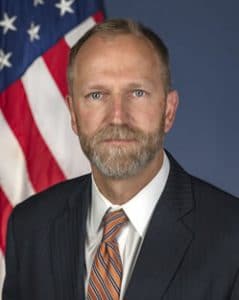The Federal Railroad Administration (FRA) is looking into Union Pacific and its management for painting an inaccurate picture about its safety strategy. SMART Transportation Division members were coerced to paint a rosy picture of their employer.
All SMART-TD members who took part in this survey should get on record with their local chairperson, then call UP’s ethics hotline. That number is (800) 998-2000.
East Palestine raises railroad safety awareness
When Norfolk Southern’s freight train lit up the horizon of East Palestine, Ohio, on February 3, 2023, it woke up more than the sleeping residents of Southeast Ohio. Federal regulators, legislators, the press and the general public all became instantly aware that dangerous materials were being hauled in mass quantities through their communities.
This prompted the Federal Railroad Administration (FRA) to conduct a safety culture analysis of Norfolk Southern and all other Class I railroads.
Norfolk Southern and its management team were cooperative. NS CEO Allen Shaw and his board cooperated with FRA and a valid and thorough safety evaluation.
Union Pacific has chosen a more dangerous approach.
FRA says Union Pacific coached employee responses
On Friday, April 26, FRA served UP’s management team with written notice that it was suspending the assessment, suggesting that things are about to get ugly for the Omaha, Nebraska-based corporation.
The FRA safety evaluation begins with an employee survey to get the perspective of front-line workers. The administration is looking for unvarnished answers and observations from our members. This creates a baseline for their investigation.
In his letter to Union Pacific, FRA Associate Administrator Karl Alexy shared that he suspects that, instead of allowing employees to speak freely and without fear of retribution, several employees were “coached to provide specific responses to FRA questions if they were approached for a safety culture interview.”
Survey manipulation widespread; workers fear retaliation
Alexy’s letter said that reports of management “coaching” workers “span the UPRR system and railroad crafts,” putting the objectivity of the information in jeopardy.
Workers during the process also expressed reluctance and a “fear of retaliation,” according to FRA.
Workers also had to report to their supervisor if they took part in the data gathering. Data integrity and confidentiality were thus not assured, Alexy wrote. “With widespread evidence that these fundamental elements have been jeopardized, FRA has no choice but to end data collection activities,” he wrote.
Union Pacific appears to violate its own policies
Two things jump out at SMART-TD about this situation. First, the study being conducted by FRA concerns the safety culture at UP. According to the railroad’s propaganda “Safety is Union Pacific’s No. 1 Responsibility.” The obvious question is, what would CEO Vena and UP have to hide and why would they need to coach its workers if safety was its top responsibility?
Secondly, what happened to UP’s “Statement of Policy on Ethics and Business Conduct,” which is prominently featured in their rule book?
UP’s policy clearly says that “No employee should take advantage of any party through manipulation, concealment, abuse of confidential information, misrepresentation of material facts or any other unfair practice.”
An effort to deceive a federal regulator and threaten/bully its employees into taking part in its scheme appears to violate all of those rules.
Another interesting quote from UP’s Ethics and Business Conduct Policy is that “Communicating this policy and OVERSEEING COMPLIANCE is the responsibility of the Chief Executive Officer and officers of the Company.”
FRA stopped collecting safety data from the carrier due to its discovery of manipulation, according to Alexy. It may try to restart the process later.
Ramifications
As far as SMART-TD is concerned, if FRA’s allegations are proven to be true, UP CEO Jim Vena and his executive team have violated their own Ethics and Business Conduct Policy. Either he was part of this scheme to mislead FRA or he was derelict in his duty to oversee the compliance of the ethics policy according to his company’s policy. Moreover, such conduct does not show a responsible approach to safety that the company says it adheres to.
No matter how this situation between the FRA and UP plays out, it is in the best interest of all SMART-TD members who have taken part in this survey to get on record with your local chairperson and the carrier’s ethics hotline. That number again is (800) 998-2000.
Your union will keep you informed as this situation progresses.
